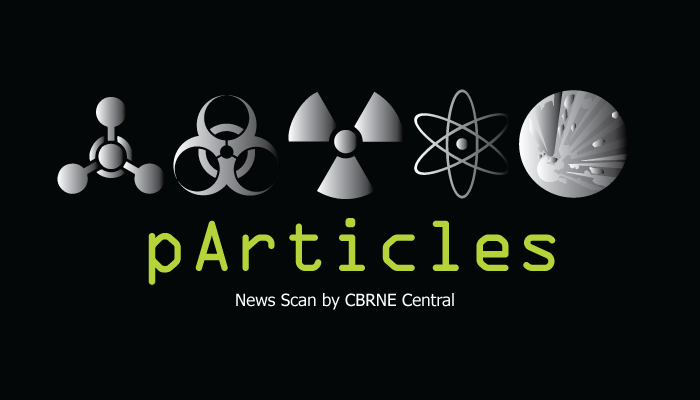Topics in this issue include sniffing out landmines, CBRNE JCACS ATD, explosives screening technologies, and the DoD anthrax lab shipments.
In This Article
How Congress Can Improve the Iran Nuclear Deal
A rebuff by Congress would drive a deep wedge between the U.S. and its partners in the deal, including our European allies. Every time the administration worked on another deal with them, they would no doubt ask whether the U.S. could keep its word if the White House and the executive branch no longer controlled American diplomacy. And, of course, Russia and China would gleefully jump on the evidence of a lack of U.S. credibility and a deepening of our obvious political dysfunctionality. Defense One >>
Yes, Rats Are Being Trained to Sniff Out Land Mines
Rats are not beloved. They frighten subway passengers, infest millions of homes across the U.S., and their beady eyes are said to be those of the devil. The ones in New York City are so threatening that the government recently declared war on them. But in Cambodia, the sight of giant rats scampering along grassy fields is a welcomed one. That’s because they’re there to sniff out land mines. CityLab >>
Industry Day Announced for Joint CBRNE Advanced Capability Sets
The Joint CBRNE Advanced Capability Sets (JCACS) Advanced Technology Demonstration (ATD) will provide the U.S. military with an enhanced and integrated CBRNE capability to execute mission command and conduct operations to counter the range of complex CBRNE threats. Global Biodefense >>
ECBC Fast Tracks Explosive Detector for Warfighters
The Chemical Reconnaissance and Explosives Screening Set (CRESS) is a screening kit that enables Warfighters and first responders to detect bulk solids or traces of homemade explosives (HME) in theater in less than a minute. The kit is made of inexpensive plastic and fits on the palm of the user’s hand. Edgewood Chemical Biological Center >>
National Guard Wants to Make More Domestic Use of Drones
A new report from RAND Corp. evaluated in depth the issue of domestic UAV operation and defined five mission types the Guard’s MQ-1 Predators and MQ-9 Reapers would be beneficial for: border immigration, border change-detection, maritime counterdrug, incident-reconnaissance (as in emergencies) and fixed-target surveillance. Defense Systems >>
US Nuclear Weapons Base in Italy Eyed by Alleged Terrorists
Two suspected terrorists arrested by the Italian police allegedly were planning an attack against the nuclear weapons base at Ghedi. The base stores 20 US B61 nuclear bombs earmarked for delivery by Italian PA-200 Tornado fighter-bombers in war. Federation of American Scientists >>
Pentagon: No Single Cause for Mistaken Anthrax Shipments
he investigation found that procedural errors at Dugway Proving Ground likely caused the problem, from the process designed to kill the live spores to the process designed to ensure they were were dead, according to a report released Thursday. Military Times >>
What the Iran Deal Means for Blacklisted Entities
Over the past decade, a global patchwork of legal measures has been sewn together by various national authorities with the aim of constraining Iran’s nuclear program. This patchwork makes up the global sanctions regime that Iran has fought so hard to end. Having been stitched together by dozens of governments, as well as the United Nations and European Union—and with only the loosest of plans to guide it—it’s a patchwork with plenty of knots. Bulletin of the Atomic Scientists >>
Health Emergency Response Resources Compendium
The HHS Response and Recovery Resources Compendium is aimed at assisting state, tribal, territorial, and local officials in health and emergency management as they guide communities in responding to and recovering from disasters. Global Biodefense >>
Armenia Confirms Ongoing Role For Nuclear
Armenia’s prime minister has confirmed a 10-year life extension of the country’s only operating nuclear power plant and that negotiations are being held on the construction of new nuclear capacity. World Nuclear News >>
Before You Listen To Pundits on Iran, See What They Said On Iraq
To a degree that will baffle historians, the political-intellectual complex that made the Iraq War possible remains intact and powerful. It’s that every politician and pundit who goes on TV to discuss the Iran deal is asked this question first: “Did you support the Iraq War, and how has that experience informed your position?” Defense One >>
Online CBRN Awareness Training — Five Lessons Learned
Many countries do not have the resources to prepare themselves adequately to respond to CBRN threats. Equally troubling is the fact that international training and assistance programs are also under budgetary pressure, with many lacking the resources to develop the sustained follow-on training and cooperation necessary to address this threat fully. One way to address this challenge is through technology. Freedom from Fear >>
Disaster Planning Still Not Meeting Children’s Needs Decade After Katrina
A new Save the Children report found that nearly 80 percent of federal recommendations – issued in 2010, five years after Hurricane Katrina – aimed at better protecting children during and after disasters still have not been fully met. Fierce Homeland Security >>
US Nuclear Weapons Base in Italy Eyed By Alleged Terrorists
Two suspected terrorists arrested by the Italian police allegedly were planning an attack against the nuclear weapons base at Ghedi. The base stores 20 US B61 nuclear bombs earmarked for delivery by Italian PA-200 Tornado fighter-bombers in war. Nuclear security and strike exercises were conducted at the base in 2014. During peacetime the bombs are under the custody of the US Air Force 704th Munitions Support Squadron (MUNSS), a 130-personnel strong units at Ghedi Air Base. Federation of American Scientists >>


